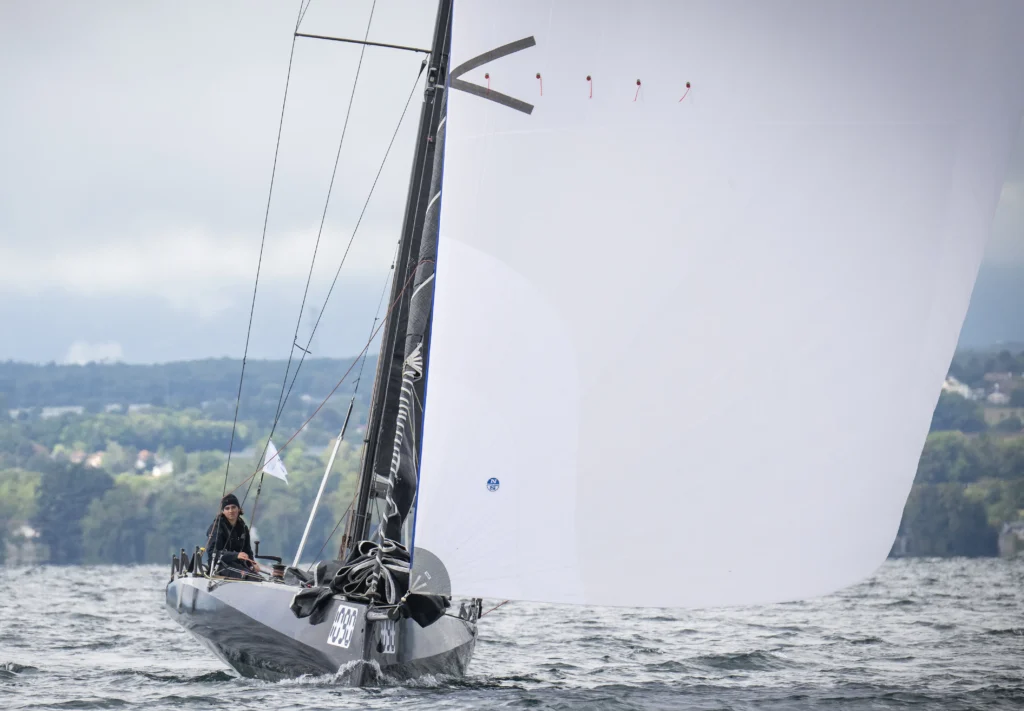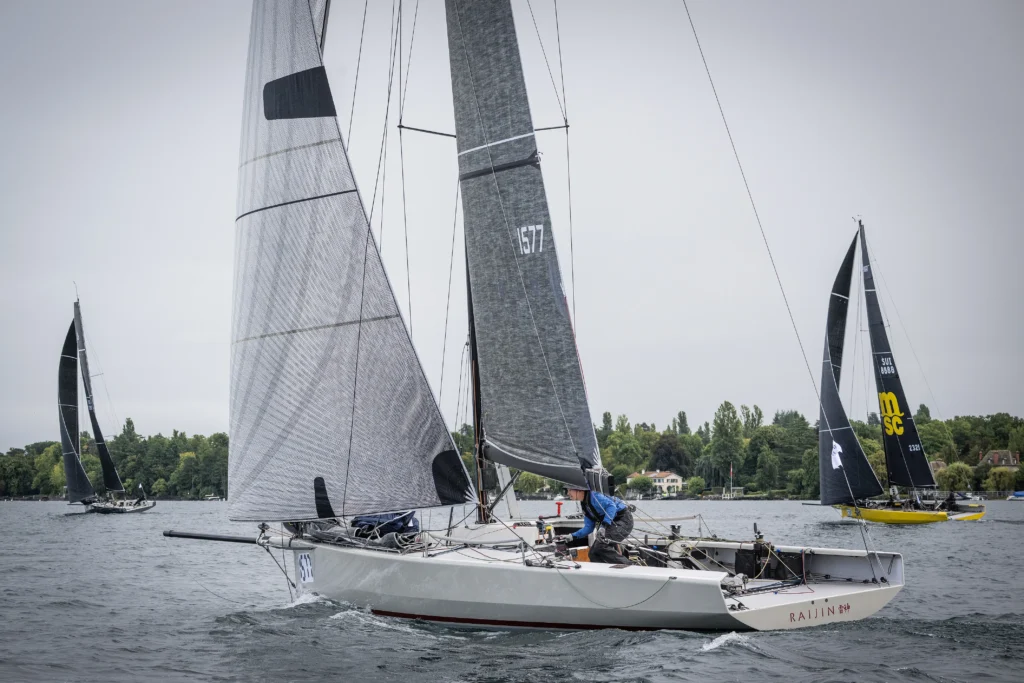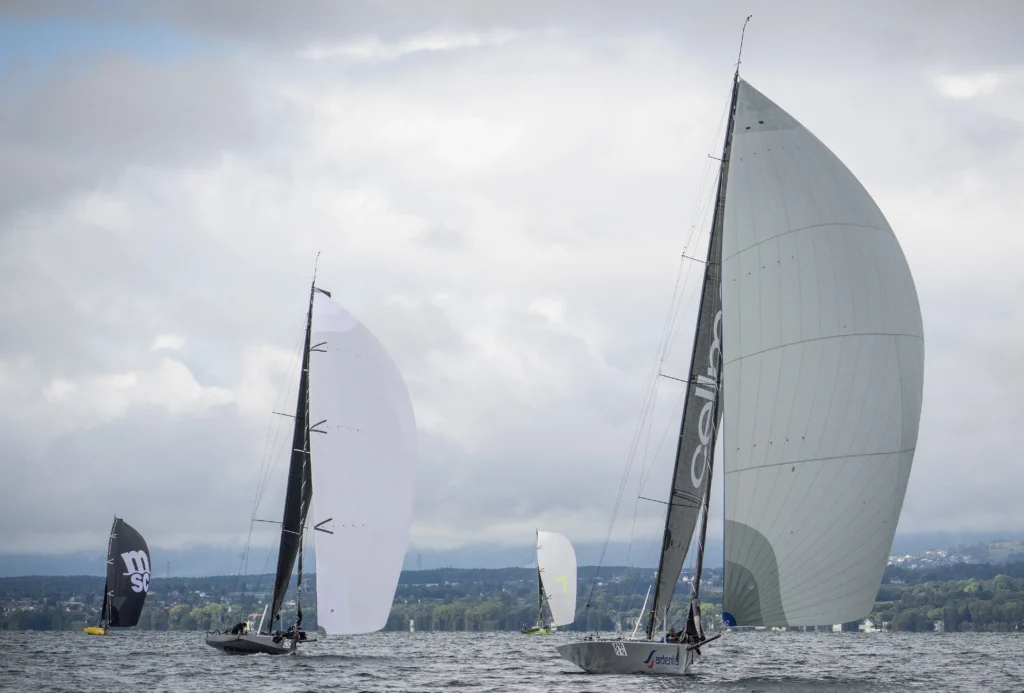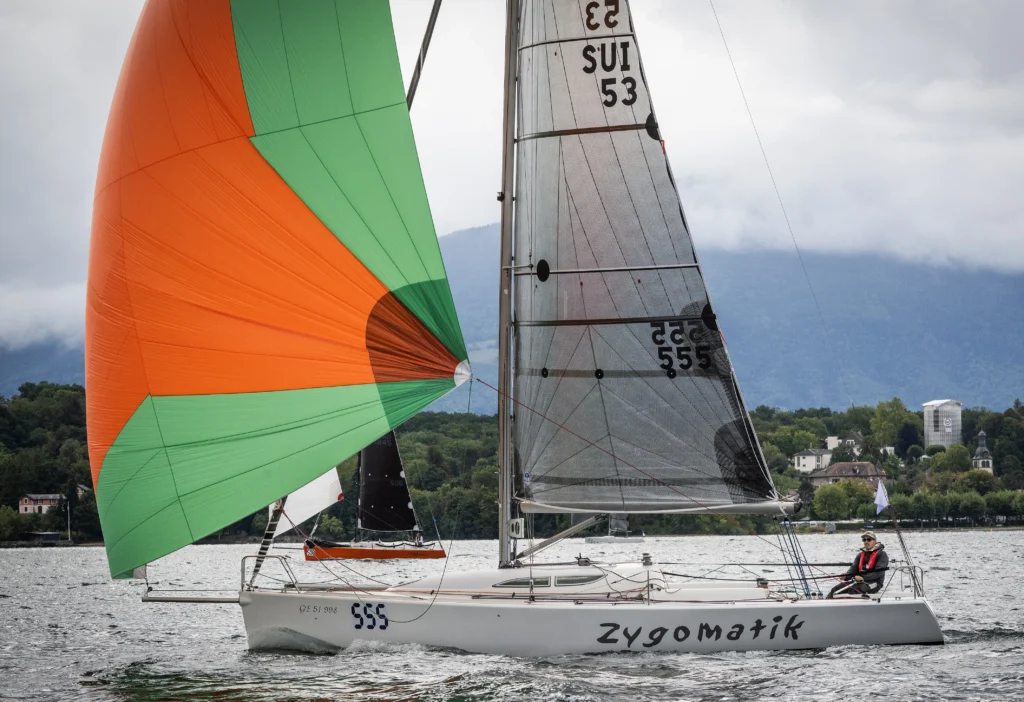Translemanic
Alain Stettler (Melges 24) and Guillaume Girod (Psaros 33) win the compensated time and the real time of the Translem solo race.
With 130 competitors registered, the 52nd edition of the Translémanique en Solitaire took place over the weekend of August 30 and 31, starting from the Société Nautique de Genève. Raced over a theoretical course of 125 km from Geneva to the Vieux-Rhône and back, it brought together the best sailors on Lake Geneva. Launched on Saturday morning at 9:30 am, in southwesterly winds and southerly thermals (molaine), the race started under spinnaker in a relatively tight downwind. It was only later, in the Haut-Lac, that calm zones reshuffled the cards, allowing the smaller class yachts to dominate the rankings on corrected time.
Guillaume Girod in the lead
Guillaume Girod was the scratch race winner, and took the lead at the halfway point to win the Challenge Dragon on the Psaros 33 Raïjin. “The race was very intense from start to finish,” said Girod. “With the Psaros 33 group, we exchanged positions throughout the regatta; it was a very intense race. To win this edition, we really had to stay focused right up to the finish line. It’s the first time I’ve won the Translémanique en Solitaire and I’m very happy with this victory.” But the battle was fierce. Guillaume Girod beat Luc Munier (Carpediem Cube) by 2 m 53 s and Alexander De Weck (Katana) by 3 m 17 s. With over twenty participations in the Translem, Luc Munier declared: “It’s getting harder and harder. The level is excellent, and the rivals don’t give up…”. As for 20-year-old Alexander De Weck, he was competing in his fourth edition, including three aboard Katana. “This is without doubt the most difficult Translems I’ve ever raced: we had to make a lot of sail changes,” he explained at the end of his race.


A Melges 24 from Thun wins the compensated classification
But while the race was fiercely contested, the real time victory in no way reflects the compensated time ranking. While Raijin won the scratch race, he was only 71st in the compensated time rankings. The latter was won by Alain Stettler, a Swiss Challenge League regular who sails Melges 24s. Arriving much later, Alain Stettler finished 22nd at the finish line. He was awarded the Challenge Tuiga. “I never thought I’d win here on Lake Geneva. It’s fantastic!” he exclaimed when told of his victory. It has to be said that this was the dashing fifty-year-old’s first participation. “I’ve taken part in two Bols d’Or, so I know a thing or two about Lake Geneva. But I have to admit that I wasn’t sure of my tactical choices, especially at night. I kept a close eye on what the others were doing on the map…” With the exception of 76 international stars who have won the Translémanique en Solitaire (Alain Gautier in 2013, 2014 and 2016, and Charlie Dalin in 2021), this member of the Thunersee Yacht Club is the first non-Lemanic skipper to win. He is followed, in compensated time, by Valentin Berner, on the Grand Surprise Zygomatik, and Jean-Philippe Ryter on the Toucan Altagang.
Thirty-seven Surprises in the race
Among the race highlights was Thomas Lepère’s victory in the Surprise category, the most numerous, with 37 boats represented. He was followed by Blaise Urben and Arnaud Machado. Nine Esse850 one-designs and as many Grand Surprises were also present. Among the special prizes, the Challenge Ella Maillart was awarded to Charlotte Frei, from Pully, the first woman in the compensated time ranking. Manuel Schmidt, President of the Organizing Committee, hopes “that this prize will help to attract more women in the future”. Indeed, at the time of this year’s event, there were still only a handful of them.
An emblematic regatta
“The Translémanique en Solitaire confirms its status as an emblematic regatta of Lake Geneva; it is certainly one of the most demanding, but also the most coveted races on our lake,” says Manuel Schmidt, President of the Committee. “The registered sailors all know their boats, the lake and the weather. They know that a small problem can quickly escalate,” he continued. Fortunately, there were no major incidents this year. Manuel Schmidt also praised the excellent organization of the regatta and the exemplary work of all the volunteers. “What I’m most pleased about is the race’s longevity, with 130 loyal participants. From a racing point of view, I also found the race exciting from start to finish; it took place in conditions that enabled the fleet to remain relatively grouped until the end, resulting in an intense regatta and a fine spectacle.” The Translémanique en Solitaire still has a bright future ahead of it.



